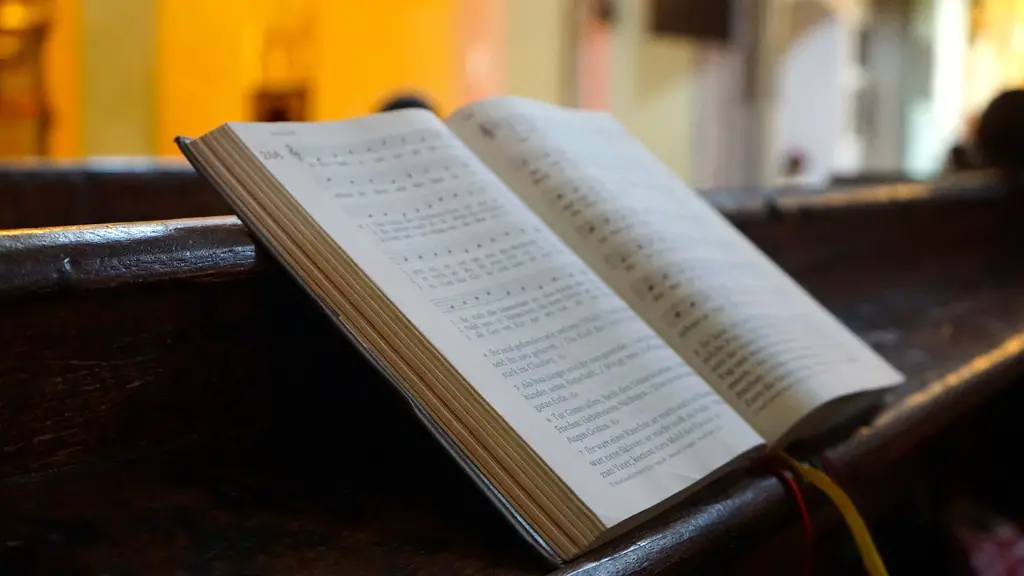Introduction
Antioch is one of the most significant cities in the Bible. It has a long history, with its early beginnings dating back to the 6th century BC. As one of the most important cities for early Christianity, Antioch played a major role in the spread of Christianity. In the New Testament, Antioch is mentioned many times, most notably as the first city to recognize the followers of Jesus as Christians. It is also the city where the disciples were first called Christians.
Where Is Antioch In The Bible?
Antioch is mentioned in several books of the Bible. It is first introduced in Isaiah 10, where it is referred to as “the strength of the children of Israel”. Antioch is also mentioned in Acts 11:26 and Acts 13:1-3. It is here that the disciples are first called Christians, leading to the establishment of the Christian faith (Acts 11:26).
The Book of Acts also mentions Antioch often during the mission of Paul and Barnabas to spread the gospel. Antioch is described as the base from which the first “Christian mission” was launched. It is also the place where Paul and Barnabas recruited more people for their mission (Acts 13:1-3).
Historical Context
Antioch was an ancient city in the Middle East, located in present-day Turkey. It was founded around 300 BC by the Seleucid ruler Seleucus Nicator. During its time, Antioch was a major rival to Alexandria and a powerful commercial center. Its strategic location gave Antioch a major advantage over other cities of the time.
In the New Testament, Antioch was an important center of early Christianity. It was the first place where the disciples of Jesus were called Christians. This event is recorded in Acts 11:26, when Barnabas and Paul went to Antioch and found a group of people already worshipping Jesus.
Legacy of Antioch
The legacy of Antioch is still seen today in the Christian faith. Because of its role in the spread of Christianity, churches around the world still use the name “Antioch” in the title of their churches. In addition, Antioch is still held in high regard by many Christians, as it was the first city to recognize the followers of Jesus as Christians.
Many of the ideas and teachings of Christianity originated in and around Antioch. It was here that the early Christian Church was formed, and it was here that disagreements and debates about the teachings of Jesus were settled.
Significant Events in Antioch
The most significant event to happen in Antioch was the recognition of the followers of Jesus as Christians (Acts 11:26). This event marked the beginning of the spread of Christianity and the formation of the early Christian Church. This event has had a lasting impact on the world and laid the foundation for the establishment of the Christian faith.
Scientific Perspective
From a scientific perspective, Antioch is of great importance. Excavations in the area have provided archaeologists with invaluable insights into the lifestyle and culture of ancient times. The ruins of Antioch provide a window into a world that was very different from the one we know today.
Antioch has also been a major focal point for historical research. Much of what we know about the early Christian Church is based on the writings of Eusebius, the “Father of Church History.” Eusebius lived in Antioch and conducted many of his works there.
Geographical Context
Geographically, Antioch was located at the center of the Middle East. It served as a meeting point and crossroads between the East and West. It was via the port of Antioch that the spread of Christianity was able to reach the farthest parts of the Roman Empire.
Conclusion
Antioch is one of the most significant cities in the Bible. Its role in early Christianity is unparalleled and its legacy is one that has had a lasting impact on the world. From a scientific perspective, it is also a major archaeological site with many discoveries waiting to be made. Antioch is an important part of the history of the Christian Church and should be remembered for its many contributions.
Religious Significance
Antioch is of great significance to many religions, especially Christianity and Judaism. Antioch was the first place to recognize followers of Jesus as Christians and it was here that the early Christian Church was formed. For Jews, Antioch was the ancestral home of the Kahal; the Jewish community that was responsible for the creation of the Talmud and the preservation of Jewish culture.
Cultural Impact
The legacy of Antioch is still seen in the culture of the region today. After the city’s destruction in 1062, the site was left abandoned for centuries. However, many of the ruins still remain, and the city has become a popular tourist destination. The ruins serve as a reminder of the city’s rich history and its role in the early Christian Church.
Additionally, the culture of the region has been influenced by Antioch in a variety of ways. Many of the customs and traditions that are still prevalent today are a direct result of Antioch’s influence.
Economy of Antioch
The economy of Antioch was based largely on trade. The city had a large harbor which served as a port for traders from all over the Mediterranean. The trade routes that passed through Antioch were the major source of income for the city and it contributed greatly to its prosperity.
The trade routes that passed through Antioch were an important part of the global economy. With its strategic location, Antioch was a major center for trade, and its currency was widely used throughout the region.
Conclusion
Antioch is one of the most significant cities in the Bible. It played an important role in the spread of Christianity and the development of the early Christian Church. Its importance is still seen in the culture of the region and the legacy of the city can still be seen in the ruins that remain. Antioch is an important part of the history of Christianity and should be remembered for its many contributions to the world.



